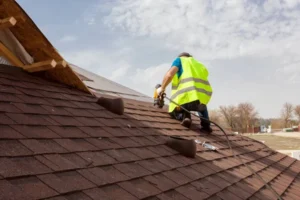Most people have to do a lot of work before they buy a house. It may involve finding real estate investing tips for beginners or an online search of a specific neighborhood. Whether it’s your first time or not, there are a few things you need to do beforehand to ensure the process goes as smoothly as possible. In this article, we’ll discuss 7 things you should prepare before buying a property.
- Title Insurance
This can save you time and money by protecting your rights to the property and ensuring that you’re not liable for any title-related issues (e.g. liens). Title insurance can help to quickly resolve disputes associated with the ownership of your property. It also provides financial protection against future claims by third parties.
Before you proceed, you should research different policies, read reviews and compare rates from multiple providers. This way you can get the best coverage at the most competitive price. It’s also important to understand what’s covered and excluded in the policy. Perhaps you live in the South Eastern region of the United States. If so, a Florida title insurance company can provide virtual 3d home tours and issue floor plans. They can also provide free escrow services and 24/7 attorney support for realtors.
- Mortgage Pre-Approval
This involves your lender assessing your financial situation, such as your income and credit score. This will help them determine how much money they’re willing to lend you. That’ll give you an idea of what kind of price range you should be looking for in a property. It also gives real estate agents a better understanding of what kind of budget they’re working with.
If you have high marks on your credit report, you’re more likely to be approved for a loan with favorable terms. But if you have low marks, it could mean higher interest rates and other unfavorable stipulations. Having a pre-approved mortgage shows sellers that you’re serious about purchasing their property and have access to the necessary funds. Since it only takes a few days to get pre-approval, it is an important step you can take beforehand.
- The Right Real Estate Agent
These are professionals who can help you find the right property, assess its condition and complete the paperwork leading up to the purchase. Before making any decisions, take some time to research real estate agents in your area and make sure they have experience handling similar properties.
You should also ensure that they’re licensed, insured, and able to provide references from past clients. Additionally, it’s important that you work with an agent who understands your needs and is willing to go above and beyond when helping you purchase a property.
- The Down Payment
This is a percentage of the total cost of your property that you must pay upfront. This amount varies by home and lender, but typically it’s between 5 and 20% (or more depending on credit score, income, and other factors). Having a down payment ready to go shows lenders that you’re intentional about purchasing a house – and can afford the loan they’re giving you.
A good downpayment allows you to avoid expensive PMI (Private Mortgage Insurance) which could be charged if your downpayment is less than 20%. So before you start looking for properties, have an idea of how much money you can put towards your downpayment. It may take time to save up this kind of money so plan ahead and set realistic goals to achieve this.
- Basic Research
Before you commit to buying a property, it pays to research the neighborhood. You should start by driving through the area and observing things like:
The condition of other properties in the neighborhood – are they well-maintained or run down?
The types of people that live there – is it mostly families, young singles, or retirees?
Proximity to services, amenities, and public transport networks – are they within easy reach?
It’s also important to consider how secure the area is – so check police statistics to get an idea of the prevalence of crime in the vicinity. Another aspect to consider is future development plans for the area. It’s worth looking into any upcoming construction projects or changes to infrastructure that may have an effect on your property’s value and desirability once completed.
- People Research
This can be done by visiting open houses and asking questions about their experiences living there. Chatting with local real estate agents and long-term residents of the area will give you an insight into life there, and what it’s like to own a home or rental property.
You can hear first-hand accounts of how safe the streets are at night and other important details that could influence your decision. By dialoguing with people in the area, it can give you an idea of potential resale values and exclusive deals on properties that aren’t listed publicly yet.
- A Home Inspection
This involves a thorough examination of the condition and safety of a house. It’s usually done by a qualified home inspector who’ll check for any issues with the structure, heating system, plumbing, electrical wiring, roofing, and other areas of concern. This should be done before you make an offer on the house so that you can better understand what needs to be fixed or replaced in order to improve its value. It’ll also ensure that you’re paying a fair price for the property.
A professional inspector may uncover hidden issues that could cost more money down the road if not addressed immediately. Knowing these things beforehand allows buyers to make an informed decision about whether they want to go through with purchasing the property. Additionally, some states require sellers to disclose specific problems prior to selling. Home inspections can help verify this information and give buyers peace of mind.
Thanks to these 7 suggestions you’ll be better prepared to buy the right property. The process will be smoother and you’re more likely to be happy at the end. You’ll find the ideal home in the right location, and it’ll serve you for many years ahead.








